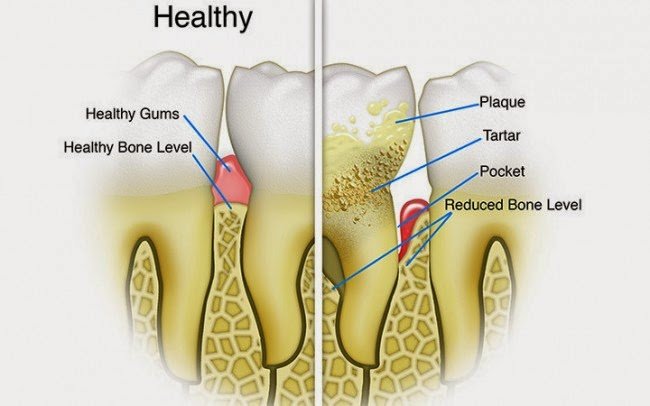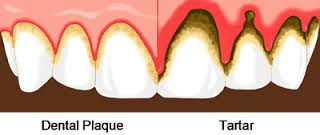Oral Hygiene Tips about Dental Cleanings
Plaque and tartar – these are two words you tend to hear often during your dental cleaning visits. Some of you may know exactly what they mean, ut for the rest of you who don’t, we’re here to help. Plus, the best way to prevent the two is to make sure you know what they are, right?

Plaque:
Let’s start with plaque. This is the thin, kind of sticky film of bacteria that collects on the surfaces of your teeth. You will probably feel it the most when you wake up in the morning. If you forget to brush your teeth for even a day, you can feel the sticky/fuzzy film on your teeth. Well, that’s what plaque is.
Plaque is easy to get rid of. A nice, thorough brushing can help eliminate plaque. But, just because it is easy to take out, doesn’t mean it should not be thought of as a necessary step in your oral hygiene. Once the sugars or the starches from your food come into contact with the plaque that is on your teeth on a daily basis, they can create a specific acid that can harm your teeth. This acid can wear away tooth enamel, create cavities (overtime) and probably one of the most known, it can lead to gum disease.
To make sure plaque does not harm your teeth, you need to be on top of your oral hygiene and care for your teeth at home. This means brushing 2-3 times a day with slow, circular motions while holding your brush at a 45 degree angle to make sure the bristles gently tuck under the gums.
Tartar:
As far tartar, this is what is created from the plaque when it is hardened. Bad oral hygiene can lead to a faster build-up of tartar. But, that is not the only factor. Some people are prone to tartar build-up and this could be related to the minerals in their saliva, the acidity in their mouth, or even age! The problem with tartar is that it is not easily removed the way plaque is. Tartar is calcified, hardened plaque and can be removed by a professional. Keeping up with your 6-month routine dental cleanings can help reduce the amount of tartar you have. Ignoring your hygiene or skipping dental appointments can lead to prolonged tartar build up. This can cause tooth enamel to break down, gums to recede, and can lead to gingivitis and eventually gum disease or bone loss.

Guidelines:
As long as you are taking care of your teeth, you can maintain good oral hygiene. By avoiding plaque build-up, you can avoid tartar build-up and all the effects it may have. Here are some tips to keep in mind to help keep your oral hygiene on check:
- Make sure you are flossing (once a day is fine)
- Brush, brush, brush (this should be done 2-3 times a day)
- Make sure you are using the right type of brush for your specific situation. Ask your dentist if you should be using a soft or medium bristled brush, and make sure you are changing your tooth brush every 3 months or so.
- You can use mouthwash as a bonus cleaning step.
- Make sure you are keeping up with your routine dental visits! Your dentist can provide you with dental cleanings that you yourself can’t do at home.
- ADA Recommendations
If you follow these steps and keep up with your dental hygiene, then you can be comfortable knowing you are doing your best to help keep your teeth and gums in great shape!
To get more information on Dental cleanings, plaque, tartar, or other dental hygiene topics, feel free to contact our office. Our staff will be happy to help answer any questions you may have. They can even help schedule an appointment if you need one to get you back on track.
Dr. Arthur A. Kezian DDS 443 N. Larchmont Blvd Los Angeles, CA 90004 (323) 467-2777
